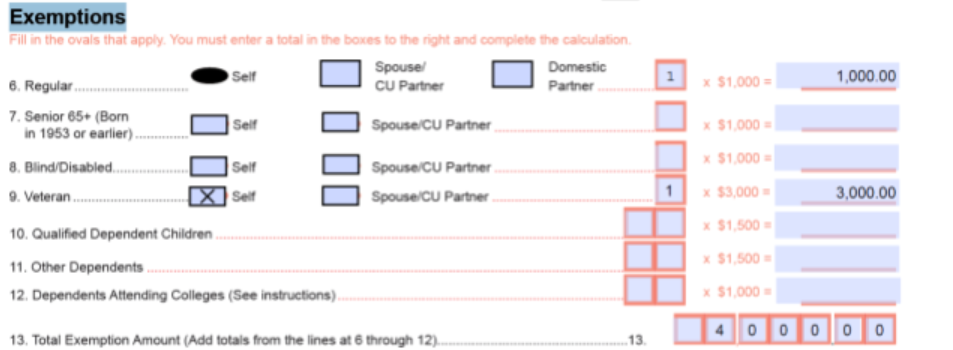
04 Apr Am I getting the full veteran’s tax break?
Photo: pixabay.comQ. I’ve been approved by the state for New Jersey’s $3,000 veteran’s exemption. Both H&R Block and TurboTax said the state told them to list the exemption on Line 9 of the return, but this doesn’t allow for the full benefit of the exemption. Can you explain?
— Veteran
A. Sure thing.
In 2016, the state increased the gas tax, and the bill had a number of other items tacked on to it.
One was a new $3,000 tax deduction for all veterans who have an Honorable Discharge from the armed forces, National Guard or Reserves, said Bernie Kiely, a certified financial planner and certified public accountant with Kiely Capital Management in Morristown.
Kiely said this deduction is actually an additional personal exemption.
“New Jersey allows you a personal exemption for being alive,” he said. “There is an extra exemption for being over the age of 65 and for being blind or disabled.”
You are also eligible to claim an exemption for each dependent and for dependents under the age of 22 who are attending college, he said.
Kiely offered the image below, which is part of a NJ-1040 income tax return showing the Exemption section for a single person under the age of 65 who was honorably discharged from the active duty military, Reserves or National Guard. This person gets a $1,000 exemption for just being, and a $3,000 exemption for being a veteran for a total exemption of $4,000, Kiely said.

As you can see, if you check the veteran’s box, you automatically get an additional $3,000 exemption, Kiely said. If you are manually preparing a paper return, you must check the box, write in the number 1 and write in $3,000.
Kiely said as you can see from the form, the $3,000 is not limited. The question now is why didn’t you get the full benefit from the exemptions?
“Exemptions are non-refundable, which means you benefit if you have sufficient income to be offset by the exemption,” Kiely said. “If you do not have sufficient income, you get no benefit.”
He said a refundable benefit is when the government sends you a check even if you have no taxable income.
In previous stories, we’ve discussed the increasing pension exclusion. For 2018, the pension exclusion is $45,000 for a single person and $60,000 for a married couple.
“If you were over 65 and had $50,000 in income, the Pension/Other Income Exclusion would eliminate your income, leaving your exemptions unused,” Kiely said. “I can think of no other way a veteran would not get the $3,000 benefit.”
Email your questions to .
This story was originally published on April 4, 2019.
NJMoneyHelp.com presents certain general financial planning principles and advice, but should never be viewed as a substitute for obtaining advice from a personal professional advisor who understands your unique individual circumstances.

